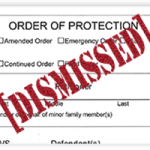The Oklahoma Supreme Court has overturned a sweeping 2017 DUI law for due-process flaws and for violating constitutional single-subject requirements. The entire law was set aside before it even took effect. The decision means ongoing uncertainty for thousands of drivers accused of DUI – and police enforcing DUI laws – with regard to the procedure for contesting drivers license revocations after DUI arrests.
Oklahoma Supreme Court
James M. Wirth, Esq.
James M. Wirth, Esq. 
The Oklahoma Supreme Court handed down speedy trial guidelines for DPS drivers license revocation hearings, suggesting the hearings must be scheduled within 60 days after DPS receives a request for a hearing. But DPS has been notoriously reluctant to accept its losses. While the new precedent could pave the way for streamlined hearing process, we anticipate the DPS docket will remain clogged with cases the Supreme Court would likely dismiss but DPS will more likely refuse to let go until told to do so by a superior court.
James M. Wirth, Esq. 
Two top courts in Oklahoma’s bifurcated court system have published contrary opinions about whether criminal court deadlines include weekends or holidays. The Oklahoma Court of Criminal Appeals maintains a legislative mandate requires it to include count all calendar days in deadlines, even if the court is closed on a day of a deadline. The Oklahoma Supreme Court earlier published an opinion declaring its business-day rules govern some criminal court deadline procedures.
James M. Wirth, Esq. 
Tests Director Responds to Appeals Court Case The Oklahoma Board of Tests of Alcohol and Drug Influence will probably not seek emergency rules for approval of reference materials used in DUI breathalyzers throughout Oklahoma. The director of the state agency has declined to recommend emergency rule making in the wake of a November, 2015 decision […]
James M. Wirth, Esq. 
Jurisdictional conflict erupted again in Oklahoma’s bifurcated court system when the top civil court ruled in a matter emerging from a criminal case. The matter involved how deadlines are computed when a litigant appeals a motion to disqualify a judge.
James M. Wirth, Esq. 
An Oklahoma appeals court said a district court abused its discretion in a protective order involving threats alleged during an international online chat. The appeals court said district courts must consider whether an allegation indicates a credible threat before granting an order of protection from domestic abuse. The decision suggests attorneys for protective order defense in Oklahoma can rely on the state’s appeals courts to carefully review lower courts that rubber stamp petitions for domestic restraining orders.
James M. Wirth, Esq. 
The Oklahoma Supreme Court eventually upheld the execution secrecy law. In the process, the court established that a person condemned to die still has a right to approach Oklahoma courts.
James M. Wirth, Esq. 
In an expedited ruling that averted a looming constitutional crisis, the Oklahoma Supreme Court on April 23, 2014, reversed a district court decision related to secrecy surrounding execution procedures. The decision means Oklahoma may execute two convicted killers without triggering a constitutional showdown. A looming constitutional crisis emerged when attorneys asked a district court to […]
James M. Wirth, Esq. 
Constitutional Showdown Looms Over Oklahoma Death Penalty Secrecy In the virtual shadows of modern-day gallows, Oklahoma’s two highest courts in April, 2014 became embroiled in a historic constitutional showdown. The top civil court stayed two pending executions after the top criminal court twice refused to order the executions stayed. Then, within hours of a scheduled […]
James M. Wirth, Esq. 
A January 28, 2014, Oklahoma Supreme Court decision makes it difficult — if not impossible — for the state to continue revoking drivers licenses based on evidence provided by the current generation of breath analysis machinery. Currently anyone arrested for DUI in Oklahoma who blows a .08 or more (or refuses to blow) has their […]
James M. Wirth, Esq. 
The Oklahoma Supreme Court has agreed to hear arguments that could save injured workers’ rights to legal representation. Oklahoma lawmakers earlier this year passed a bill that replaces the state’s judicial Workers Compensation system with an administrative system By assuming original jurisdiction to set a Dec. 10, 2013 hearing, the Supreme Court allowed attorneys to […]





















